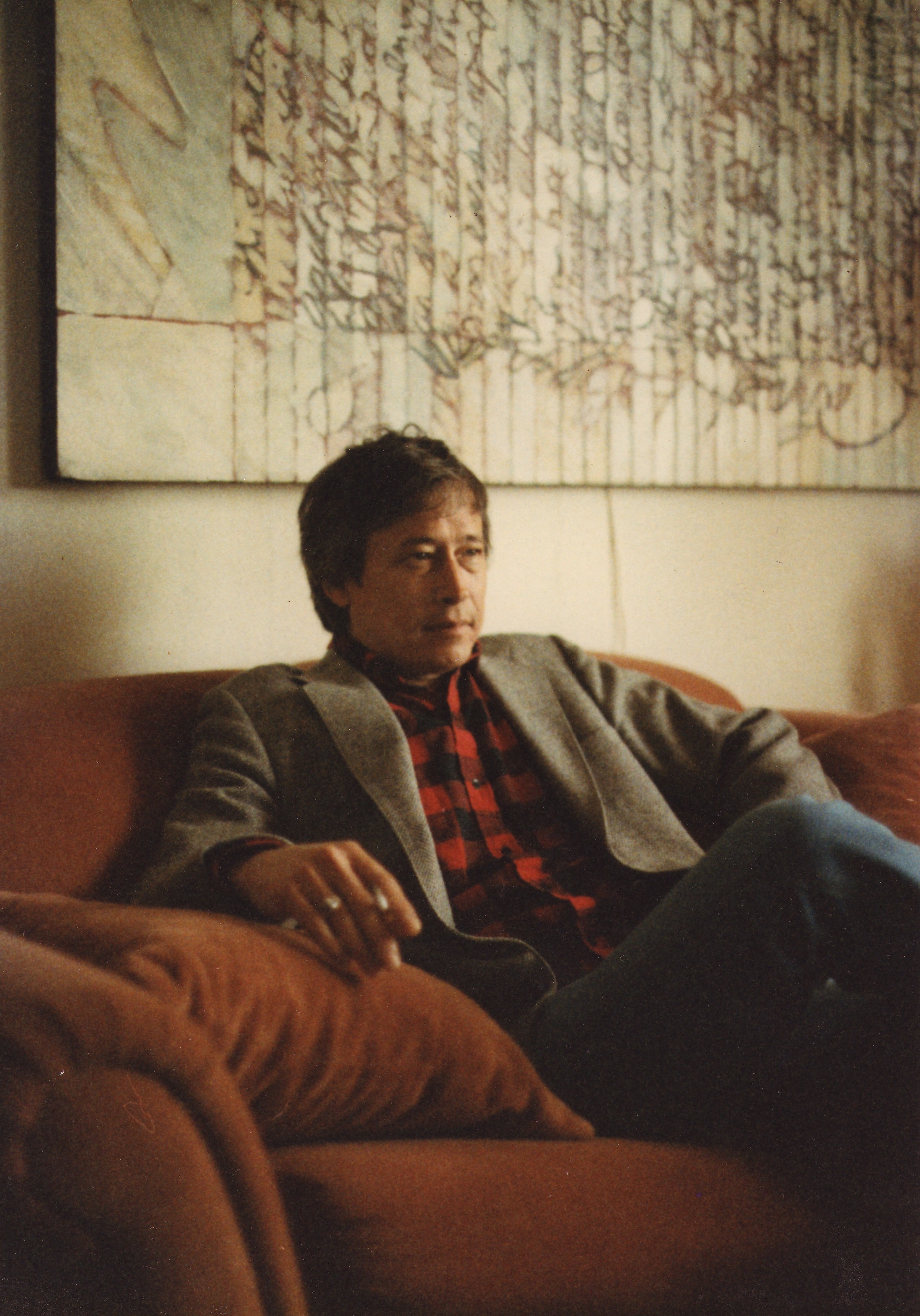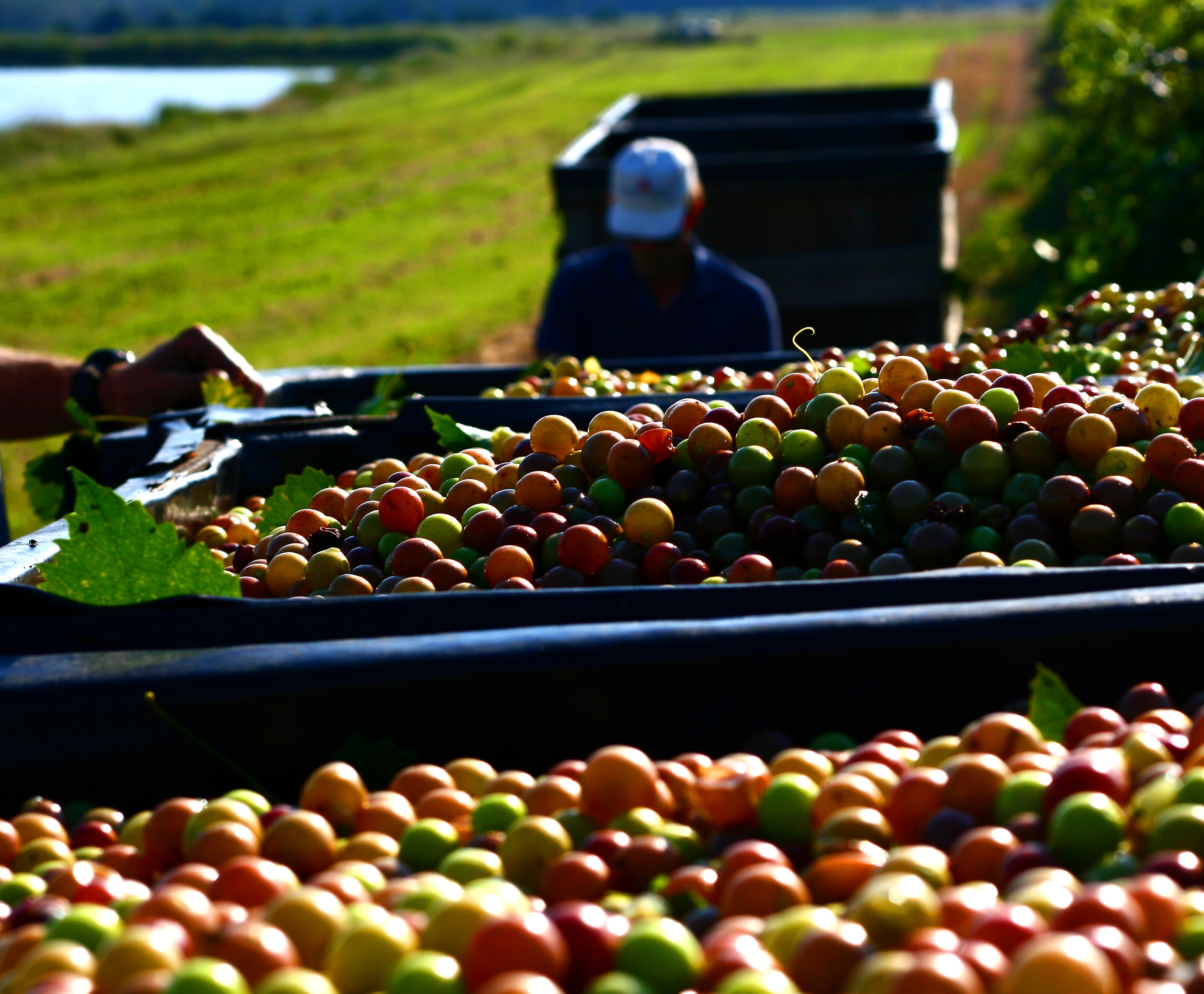High on Wine: An Interview with Barry Hannah
Interviews

by Greg Brownderville
In the late aughts, my buddy Luke Duncan and I were both grad students at Ole Miss in Oxford, Mississippi. Luke owned some cameras for a videography business he ran on the side, and I had a fair amount of experience doing interviews. We decided to merge our skills and resources to make a short film about a wild Southern grape called the muscadine—hands down, my favorite food on earth. The film never quite came together, but we got some fascinating footage.
We noticed that Oxford’s greatest dead writer, William Faulkner, and her greatest living writer, Barry Hannah, both had muscadine arbors in their yards. Now Hannah, too, is gone; he passed away in 2010.
I had gotten to know him a little during my time in Oxford, and felt comfortable asking him whether he’d let me interview him about his history with muscadines. He cheerfully assented and suggested we shoot it in his backyard and include his wife, Susan. That interview, now more than twelve years old, has never been released until now.
“My history of muscadines . . .” says Hannah. “It was intense, it was love. They’re exotic. They’re exotic and domestic at the same time.” That comment makes me think of Hannah himself, a homegrown Mississippi writer, sure, but one who plied a once-in-a-universe imagination.
As a grad student, I said to a friend, “Barry’s a hell of a talker. Let’s see if he’ll let us put a mic in front of him and make a Barry Hannah podcast.” I never got around to formally proposing that, and you have no idea how bitterly I regret it. What a gift to the world it would have been. His talk exhibited all the color and swerve you love in his printed sentences. He was maybe the most brilliant, entertaining talker I’ve ever known. This short video is the closest I came to following through on the podcast idea. The footage is fantastic, and I wish to my soul there were more.
By the time we did the interview, Luke and I had talked with dozens of people about muscadines. Asked what makes this wild grape special, they had dutifully stayed on topic but had mostly fumbled over their words, struggling to touch the core mystery. Hannah had a different way, and initially it confused us. He wandered wide across a gamut of subjects. I mean, we loved what he was saying about college football, dogs, auto culture, and the grim changes in Oxford life. We could have listened happily for hours while he talked about anything under the sun, but we wondered: Does he remember we’re here to talk about muscadines?
He kept changing the subject.

In one moving moment, Hannah recalls a college football weekend with his father: “I think of the wonderful time my dad and I had at Arkansas drinking wine and watching the University of Arkansas, who was number one in the nation, whoop Texas, both of us high on wine from Altus. Dad bought about a case! And that’s one of the best afternoons I’ve ever spent.” (Since I’m a lifelong Razorback fan and a devotee of the muscadine wines from Altus, Arkansas, this little anecdote hits me square in the heart. Now the Razorbacks are one of the worst teams in the Power Five. This weekend’s version of Arkansas vs. Texas will be Bama vs. LSU.)
Hannah talks quite a bit about his dogs, and throughout the interview, little canine footsteps can be heard in the drought-brittle grass. At one point, glancing over at his vines, he says, “These, for us, have been happy and sad.” Then, in one of his signature syntactic oddities, he adds, “They commemorate, as well as just sit there.” He and Susan had buried their deceased pets below the arbor. “[The muscadines] are the symbol,” he says, “the headstone, of our precious creatures, our dogs and cats that we’ve lost.”
While staying on the topic of dogs, the conversation later turns to some unfortunate changes in local culture. “Woody got hit by a car,” Hannah says. “People just speed—all these cars I hate. I have never killed an animal in a car! . . . People think they’re so important . . . Just useless slaughter of beautiful creatures, who are spiritual to both of us, obviously.”
Next thing you know, Hannah’s telling the story of a violent oyster-shell fight from his boyhood days in Bay St. Louis, Mississippi (10:43). Only when I ask him to explain does he clarify the connection between this tale and muscadines: a vine hung over the oyster-shell drive where the fight took place. A dangerous accident happened and a kid got hurt. Hannah takes care to point out that nobody sued as they would today: “This was neighborly . . . That was just the hazards of boyhood.”
Hannah declares the muscadine “the best thing I can think of from my nostalgia and youth. It’s a beautiful vine to me. I think I did the arbor—with help from [Susan’s] design, always.”
“I built it,” Susan corrects him.
Watching the interview days after recording it, I came to understand. Hannah, who of all our interviewees had seemed to stray furthest from muscadines, had actually come closest to their magic and meaning. For him, any topic lived in a whole ecosystem of memories and thoughts. To ask him a question was like dropping a stone in a creek. Disturb the water and watch the colorful fishes swarm. Ask Hannah about muscadines, you get Dad, college football, boyhood fights, and dogs. You get a small town back before people hit your dogs with their fancy vehicles. That’s what muscadines meant, as far as he was concerned. This nostalgic, sentimental side of Hannah is one I’ve rarely seen in his other interviews. I guess the grapes brought it out.
Hannah called the muscadine “our grape, the hard-skin grape” of the Deep South. Its brief season just passed, but surely some of y’all made jam. I recommend it as a replacement for the Thanksgiving cranberry sauce, to which it is so unspeakably far superior that to compare them is an insult to the noble muscadine.
Meantime, a little foretaste: sit back and enjoy as Barry Hannah—the eternally hip Mississippi word-slinger—kicks off SwR’s original video series.
Greg Brownderville is the author of three books of poetry and Editor-in-Chief of SwR.
Photo: Luke Duncan
More Interviews


